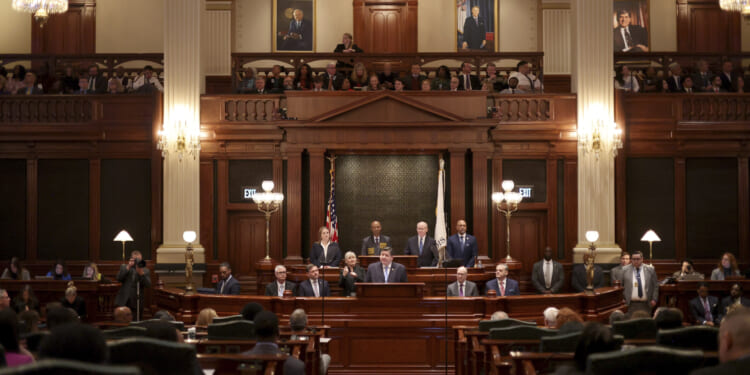State lawmakers are rushing a first-in-the-world wealth tax on billionaires. They also want taxes on streaming services such as Netflix and Spotify and steep surcharges on concerts and ticketed events.
Illinois House Democrats introduced a $1.5 billion transit funding plan with a wealth tax on hypothetical income that doesn’t exist anywhere in the world. Taxes on streaming services and ticketed events are also a part of the plan.
The proposal includes:
- A 4.95% tax on unrealized capital gains for individuals with more than $1 billion in assets.
- A 7% amusement tax on streaming services such as Netflix and Spotify.
- Increasing the sales tax in Cook County on certain food items by 0.25 percentage points.
- A $5 surcharge on tickets for large concerts and performances.
- Expanded speed camera enforcement in suburban areas to generate additional transit funding.
Illinois would be the first in the world to tax wealth based on unrealized capital gains. Billionaires can leave the state far more easily than others can. When they leave, Illinois loses out on their income, property and sales tax dollars. As the tax base shrinks, the state would need to make up for that lost revenue, and less wealthy Illinoisans will be the only ones left to tax.
There’s no stopping lawmakers from lowering the threshold at which it kicks in in the future. What starts with billionaires opens the door to taxing others next. Even Gov. J.B. Pritzker doesn’t support the proposal.
“As it is, it’s not going forward” Pritzker said referring to the bill.
The plan avoids service cuts and fare hikes at Chicago-area transit systems including the Chicago Transit Authority, Metra and Pace, which face a $200 million-plus shortfall starting in 2026. The tax hikes go beyond what’s needed to prevent service cuts.
The legislation would also create a new, more powerful Northern Illinois Transit Authority to oversee Chicago-area transit but governance reform without spending reform doesn’t solve the root issue of low ridership.
Illinois already carries one of the highest tax burdens in the country. A wealth tax on phantom income and new levies on streaming and entertainment could send another signal that Illinois is not a welcoming place to invest, build or stay.
Illinois doesn’t need new taxes on innovation and success. It needs real spending reform, pension solutions and a tax code that encourages growth and expands opportunity.
Contact your lawmaker and tell them to vote “NO” on the transit tax hike.










